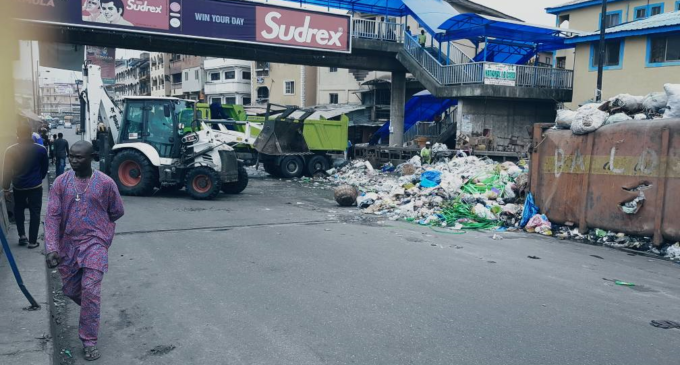Children bear the brunt of Nigeria’s environmental woes

With the soot in Port Harcourt, Rivers state, piling garbage across cities in Nigeria, and oil spills in Lagos and Niger Delta regions, Nigeria’s children risk early death.
Children are susceptible to illnesses and consequent deaths as a result of threats to the environment because of their smaller bodies, growing organs and developing immune systems.
Currently, over 1.7 million children under five, worldwide, are dying yearly as a result of environmental pollution.
In Nigeria, the statistics are even more troubling with over 94% of the population getting exposure to air pollution levels that surpass WHO recommendations, the World Bank noted in a 2015 report.
So, children in Nigerian face respiratory illnesses as they inhale all kinds of toxicities including soot – the black powdery substance that contains carbon which has been pervading the air in Port Harcourt since early 2017; and smoke from burning heaps of waste and unclean fuels such as coals – which is largely being used in rural areas.
For instance, in Okoya Thomas, Surulere, waste generated by human activity often get burnt.
“My neighbour would often not pay to get his waste disposed of properly by the waste management people and would resort to burning them,” says Veronica Bisi, (not real name because she wants to remain anonymous).
“One time, the field beside my house was rid of some grass and rather than dispose properly, the grass was burnt.”
Bisi says there are at least six children below the age of eight in the neighbourhood who have to inhale the smoke that emanates from the fire.
She says the kids have to deal with either the smell of smoke, or the effect of waste that often flows down from the garbage drums into gutters, blocking them and causing mosquitoes to thrive in the stagnancy of the water.
Either way, young children are the casualty with malaria being responsible for 30 per ent of child deaths.
The World Health Organisation (WHO), in its 2017 report titled ‘Inheriting a Sustainable World: Atlas on Children’s Health and the Environment’, says one in four deaths under five years of age is caused by unhealthy indoor and outdoor environmental pollution.
WHO defines air pollution as “the contamination of the indoor or outdoor environment by any chemical, physical or biological agent that modifies the natural characteristics of the atmosphere.”
“A polluted environment is a deadly one – particularly for young children,” Margaret Chan, WHO’s former director-general had said in reaction to the report.
And according to the organisation, harmful exposure to incineration can start in the mother’s womb and increase the risk of premature birth.
“When infants and pre-schoolers are exposed to indoor and outdoor air pollution and second-hand smoke they have an increased risk of pneumonia in childhood, and a lifelong increased risk of chronic respiratory diseases, such as asthma,” Chan had said.
This played out in the case of children resident in the Ikosi, Ketu, the part of Lagos, where Olusosun, a massive dumpsite is located.
In March, the residents of the region had to deal with inhaling copious amounts of carbon as the dumpsite went up in flames.
Joseph Okoghenun, a father of two kids and a journalist, lamented the situation.
He said his kids battled respiratory diseases as they breathed in toxic amounts of carbon.
“For two weeks in March fire gutted Olusosun dumpsite,” Okoghenun says.
“The effects of the inhalation on the health of residents of the affected areas is worrisome.”
Okoghenun added that his children suffered from incessant cough and other respiratory diseases.
In those two weeks, “the residents of Ikosi (Ketu), Ojota and some parts of Ikeja, among others, inhaled dangerous amount of carbons from the incineration.
According to WHO, exposure to air pollution could increase children’s lifelong risk of heart disease, stroke and cancer. The organisation categorised carbon monoxide, ozone, nitrogen dioxide and sulphur dioxide as pollutants that are of major public health concern and that can cause often fatal respiratory diseases.
With support from Code for Africa.














There are no comments at the moment, do you want to add one?
Write a comment